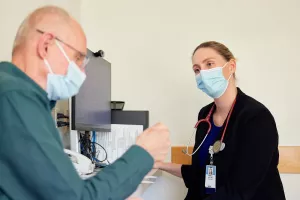A heart transplant is a surgery to replace a damaged or diseased heart with a healthy one from a donor. It’s a major procedure, but it can save your life and help you feel better, giving you the chance to enjoy the things you love again.
In 2023 and 2024, Tufts Medical Center in Boston proudly broke the New England record for the most heart transplants performed in a single year. This milestone highlights our advanced medical expertise and dedication to supporting you every step of the way—from preparation to recovery and beyond.




